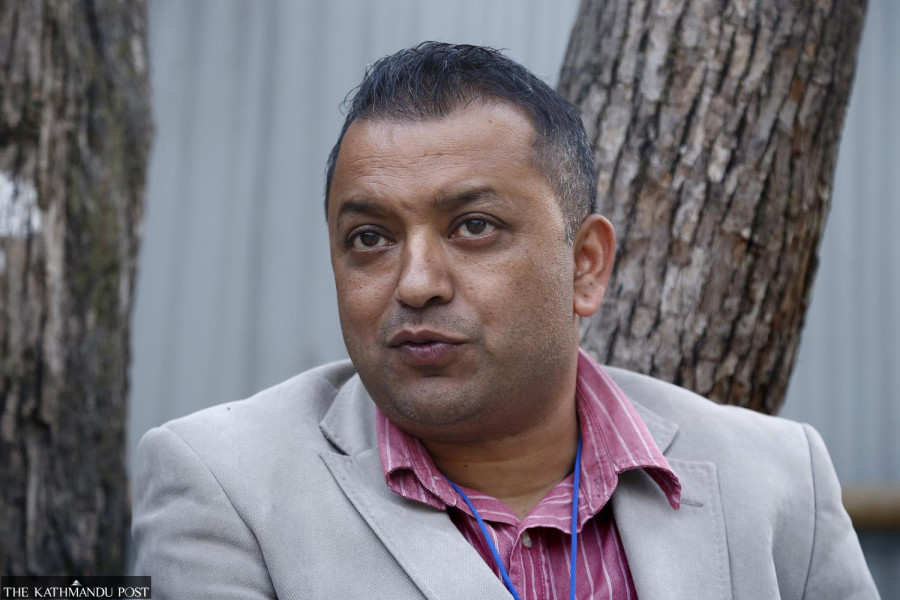Politics
Gagan Thapa’s proposal to recall Congress ministers sparks fresh intra-party debate
The party has nine ministers in the government. The proposal is yet to be officially discussed in the Congress.
Anil Giri
Nepali Congress General Secretary Gagan Thapa on Sunday proposed that all Congress ministers be recalled from the government. Thapa’s statement comes a week after the end of the party’s central working committee meeting. He is yet to officially make any such proposal at party meetings.
“Let’s allow the Socialist Front to run the government,” Thapa said at a function on Sunday, referring to the political bloc formed three months ago by three ruling parties—the CPN (Maoist Centre), the CPN (Unified Socialist), and the Janata Samajbadi Party, plus the Netra Bikram Chand-led Communist Party of Nepal, which is not in the government. The Congress has nine ministers in the Pushpa Kamal Dahal-led government and leads some provincial governments too.
Thapa’s proposal has sparked a new debate in the party.
One central working committee member of the party told the Post that it would have been better had Thapa made the proposal at the recently-concluded meeting of the committee. “Or he could have discussed the proposal with party president Sher Bahadur Deuba,” the leader said. “Otherwise, this only seems to be wishful thinking.”
Thapa said that it was agreed that the incumbent prime minister would run the government for two to two-and-a-half years. “After Prachanda [Prime Minister Dahal], it is said that Madhav Kumar Nepal will be the prime minister and they are also talking about a merger,” Thapa added. “My proposal is that we recall all our ministers from the government and let them run the government for another two-and-a-half years. We can support them on the [parliament] floor.”
Some sections of the Congress are now debating why Thapa made such a proposal at a public gathering just five days after the conclusion of the party’s central working committee meeting. “The committee meeting had concluded that there is no alternative to the present alliance,” said Min Bishwakarma, the party spokesman. “What prompted some of our leaders to come up with a new proposal in a matter of five days?”
At the meeting, several Congress central working committee members had accused the government of failing to address the challenges facing the country. Some members criticised the government for failing to contain rising inflation and address public frustration amid rampant corruption, as well as fragile governance and unemployment. They said the party has been unable to generate hope among the people and thus decided to draw the attention of the government.
“Either the decision of the central working committee was wrong or the Congress leaders who are looking for alternatives to this alliance and government are wrong,” Bishwakarma said.
Meanwhile, another senior Nepali Congress leader Shekhar Koirala too has publicly lashed out at the government, saying that the Congress should dare to seek an alternative to the present government if public frustration keeps rising. The Deuba faction, however, is firmly in favour of the current alliance. But voices demanding a ‘course correction’ are growing in the party.
“If we are not going to correct ourselves, no one can save the party in the next elections,” said Pradeep Poudel, a youth leader of the party. “We contested the last elections with the support of four or five parties but if the current level of mass frustration continues, we are not going to win the elections even if we join hands with 15 parties.”
Of course, factionalism and groupism aren’t a new phenomena in the grand old party. But after the rise of some new political parties and independent candidates, youth Congress leaders like Thapa and Poudel appear insecure and propose some operational changes in the party.
Thapa, the party’s popular face, is now mulling several reforms and organisational restructuring with the support of another general secretary, Bishwa Prakash Sharma. But these proposals of reform and changes are not yielding positive results, party leaders say.
They say Thapa, Sharma and Poudel want to lead the party and the government from the party’s upcoming 14th general convention onwards and they have already begun campaigns targeting the upcoming Mahasamiti meeting, the second most powerful party body after the general convention, scheduled for November.
“Why is the party in a crisis when Young Turks like Thapa and Sharma are there?” questioned a senior Nepali Congress leader. “The Congress was on the right track in the past, but it now faces several challenges despite them being in important positions in the party.”
Minendra Rijal, another central committee member, stressed that time has now come for the party to do some “soul searching.”
“Why is there mistrust among us? Why are there groups and factions in the party?” Rijal said. “To avoid differences in the party and to bury the hatchet among the groups and factions, we need to do some soul searching.”




 18.12°C Kathmandu
18.12°C Kathmandu















